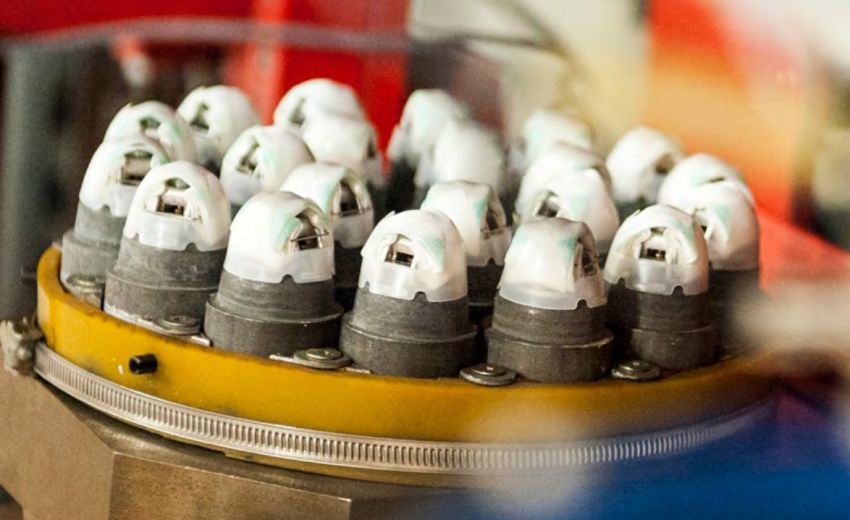
Fred Leplat, on behalf of [British organistion] Anti*Capitalist Resistance (A*CR) critically examines the controversial supply of cluster munitions from the United States to Ukraine amid its ongoing struggle against Russian invasion, weighing the need for armed resistance with the potential humanitarian risks posed by these internationally condemned weapons.
* * *
The supply of cluster munitions by the US to Ukraine must be opposed. Anti-capitalists and internationalists support unconditionally the people of Ukraine in their armed resistance to liberate their country from the Russian genocidal invasion. But the support for Ukraine is not necessarily uncritical. We have been critical of the [Volodymyr] Zelensky government attack on labour rights in the country and its embracing of neoliberal policies. Now we have to criticise its use of cluster munitions.
Cluster munitions used in areas with civilians makes an attack indiscriminate and a violation of international humanitarian law. Cluster munitions open in mid-air and disperse dozens and even hundreds of smaller bomblets, over an area the size of a city block. Many bomblets fail to explode on initial impact, leaving duds that act like landmines, posing a threat to civilians for years and even decades afterwards. That’s why cluster munitions have been comprehensively banned by over 100 countries who joined the [2008] Convention on Cluster Munitions. But Russia, Ukraine, and the US have not signed up to the Convention.
It is understandable that Ukraine wants to get all the arms necessary for a quick and decisive victory against the Russian army. But socialists have been campaigning for the banning of cluster munitions, as well as nuclear and chemical weapons, for decades, and we should not change our stance today.
The Ukrainian Defence Minister, Oleksii Reznikov, states that the primary aim of cluster munitions will be to break through Russian forces and will not be used in urban areas, and that it is only after victory that they will be used to de-mine areas of Ukraine [*]. He points out that Russia has extensively used cluster bombs in Ukraine, implying that it is therefore acceptable for Ukraine to also use them. This sort of argument is dangerous as it could be used to justify using other weapons of mass destruction such nuclear or chemical, or ecocidal ones such as napalm or agent orange. Human Rights Watch has documented that Ukraine has also used cluster munitions, albeit on a much smaller scale. While not used on cities, they nevertheless did cause death and injuries to civilians.
Again, according to Human Rights Watch, “the cluster munitions that the United States is considering sending to Ukraine are more than 20 years old, scatter over a wide area, and have a notoriously high failure rate, meaning they could remain deadly for years”. With the extensive ban on cluster munitions, it suits the US to get rid of old stock which cannot be sold, and is dangerous and expensive to decommission. However, it leaves a dangerous legacy for the Ukrainians. Hundreds still die every year from unexploded cluster munitions around the world.
Whatever the military arguments, opposing the precepts of the Convention on Cluster Munitions will make it harder for Ukraine to argue for the international rule of law. If Ukraine gets weapons that most United Nations member states (including Britain) are seeking a ban on, it will affect its ability to win solidarity and condemnation of Russia’s illegal occupation by these states.
Unless the Russian army stops fighting and retreats, then Ukrainians have no choice but to continue their armed resistance. Russia is unlikely to stop fighting in the foreseeable future given the objectives stated by [Russian president Vladimir] Putin, that is Ukraine’s de-Nazification and demilitarisation and implicitly integration into Russia’s orbit. That’s why we support their right to obtain conventional weapons and de-mining support. It also needs non-military aid, in particular medical aid and support for refugees.
Many countries that have been invaded by a much larger one, have been victorious, but not just by military means. If Ukraine wants to maintain the solidarity around the world, it should not break the ban on cluster munitions by over 100 countries. Ukraine also needs to support anti-war activists in Russia and welcome deserters from its army. Reconstruction after the war must be for another Ukraine with economic and social justice, not one where the country’s assets are handed over to western capitalism. Such a reconstruction would give hope to Ukrainians that liberation of their country will be more than just defeating the Russian army. And Ukraine also needs a mass solidarity internationalist movement that supports its armed resistance and at the same time resists the escalating militarism in the West.
[Reprinted from anticapitalistresistance.org.]
*GL Editors note: Reznikov said the areas where cluster munitions are used will be prioritised for de-mining, not that they will be used to de-mine areas of Ukraine.